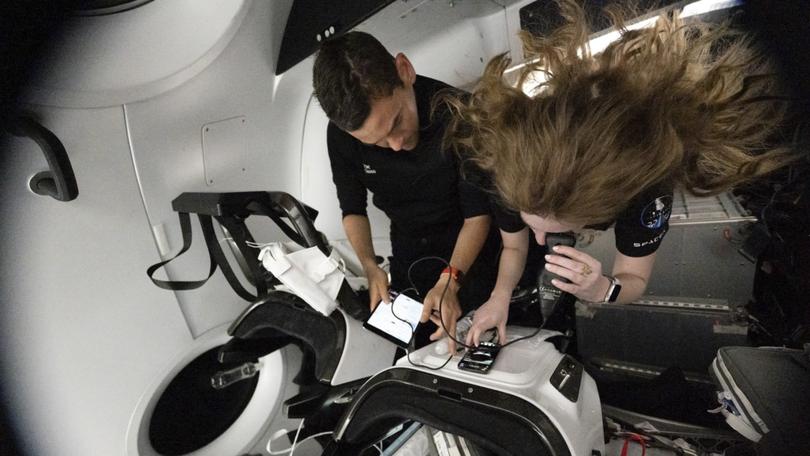The New York Times: Three days in space were enough to change four astronauts’ bodies and minds
How the Inspiration4 crew, who spent only three days off Earth, experienced physical and mental changes

Space changes you, even during short trips off the planet.
Four people who spent three days off Earth in September 2021 experienced physical and mental changes that included modest declines in cognitive tests, stressed immune systems and genetic changes within their cells, scientists report in a package of papers published Tuesday in the journal Nature and several other related journals.
Almost all of what changed in the astronauts returned to normal after they splashed down on Earth. None of the alterations appeared to pose a showstopping caution for future space travellers. But the results also highlighted how little medical researchers know.
Sign up to The Nightly's newsletters.
Get the first look at the digital newspaper, curated daily stories and breaking headlines delivered to your inbox.
By continuing you agree to our Terms and Privacy Policy.Christopher Mason, a professor of genomics, physiology and biophysics at Weill Cornell Medicine in New York City and one of the leaders of the research, called the collection of papers and data “the most in-depth examination we’ve ever had of a crew” as he spoke during a news conference Monday.
The four astronauts travelled on a mission, known as the Inspiration4, which was the first trip to orbit where not one of the crew members was a professional astronaut. Jared Isaacman, a billionaire entrepreneur, led the mission. Instead of bringing friends along, he recruited three travellers who represented a wider swath of society: Hayley Arceneaux, a physician assistant who survived cancer during her childhood; Sian Proctor, a community college professor who teaches geoscience; and Christopher Sembroski, an engineer.
The Inspiration4 crew members consented to participate in medical experiments — collecting samples of blood, urine, feces and saliva during their flight — and to allow the data to be catalogued in an online archive known as the Space Omics and Medical Atlas, or SOMA, which is publicly available.
SOMA also includes data from other people who have flown on private space missions, as well as Japanese astronauts who have flown to the International Space Station, and a study that compared the health of Scott Kelly, a NASA astronaut who lived on the International Space Station for 340 days in 2015 and 2016, with his twin brother, Mark, a retired astronaut who is now a senator representing Arizona.
With more private citizens buying trips to space, the hope is that SOMA will quickly fill up with more information about a wider range of people. That could lead to treatments tailored to individual astronauts to combat the effects of spaceflight.
This article originally appeared in The New York Times.
© 2024 The New York Times Company
Originally published on The New York Times
